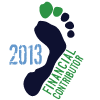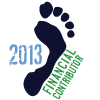Yes, I'm interested to see what your new doc says. I'm no expert, but I have a personal theory that if there's no or minimal pain, then it's okay to exercise. I wonder what his opinion will be.
Yes, I think exercise is always recommended--a strong heart and overall health being more important than conserving the meniscus. The question is, in the absence of pain, what sorts of exercise are recommended. The first doc advised against heavy squats and running.
A theory that says heavy squats and running are still OK might go something like this:
1.) The small, interior tear to my medial meniscus was caused by normal (age-related) wear and tear--i.e., it's degenerative, not traumatic. The meniscus is like the brain and heart, the tissue doesn't have much regenerative power, unlike, say, skin.
2.) My meniscus will continue to degenerate no matter what I do, new tears may appear.
3.) Exercise may occasionally aggravate the tear, in which case I will have to back off and rest it.
4.) Exercise involving impact, repetitive stress, or compressive forces may aggravate the tear even more, but probably won't cause new ones.
5.) Exercise will help keep the rest of the knee healthy for longer. Exercise involving impact, repetitive stress, or compressive forces may help keep the knee even healthier, and so it's worth continuing.
I think the first doc's advice assumes that other types of exercise like biking and swimming will also keep the knee, heart, and everything else relatively healthy, so there's no point in doing exercises like heavy squats and running, which are harder on the meniscus. So the only point in doing heavy squats and running is if the benefits to the knee and/or overall health outweigh the degenerative effects on the meniscus.
Does this make sense?
I'm trying to reconcile the two points of view. Docs seem to argue from principle, and of course are liable for giving advise that may prejudice the particular body part or function they're responsible for, but a lot of anecdotal evidence says that heavy squats and running are still ok, as long as they're monitored and one is able to manage the occasional flare-up. But even if one is pain-free, is one hastening the demise of the meniscus, and thus bringing osteoarthritis and eventual knee-replacement closer?
But then, as medicine and technology continues to advance, does it even matter?
And then there's the simple fact that, as much as I like running and squatting (relatively) heavy, I like locomoting pain-free even more. Is it worth dealing with these occasional flare-ups?
Anyway, full report Thursday or Friday. Stayed tuned.
BTW, are you still meeting with the powerlifting trainer? Or was it a one-time deal?





































